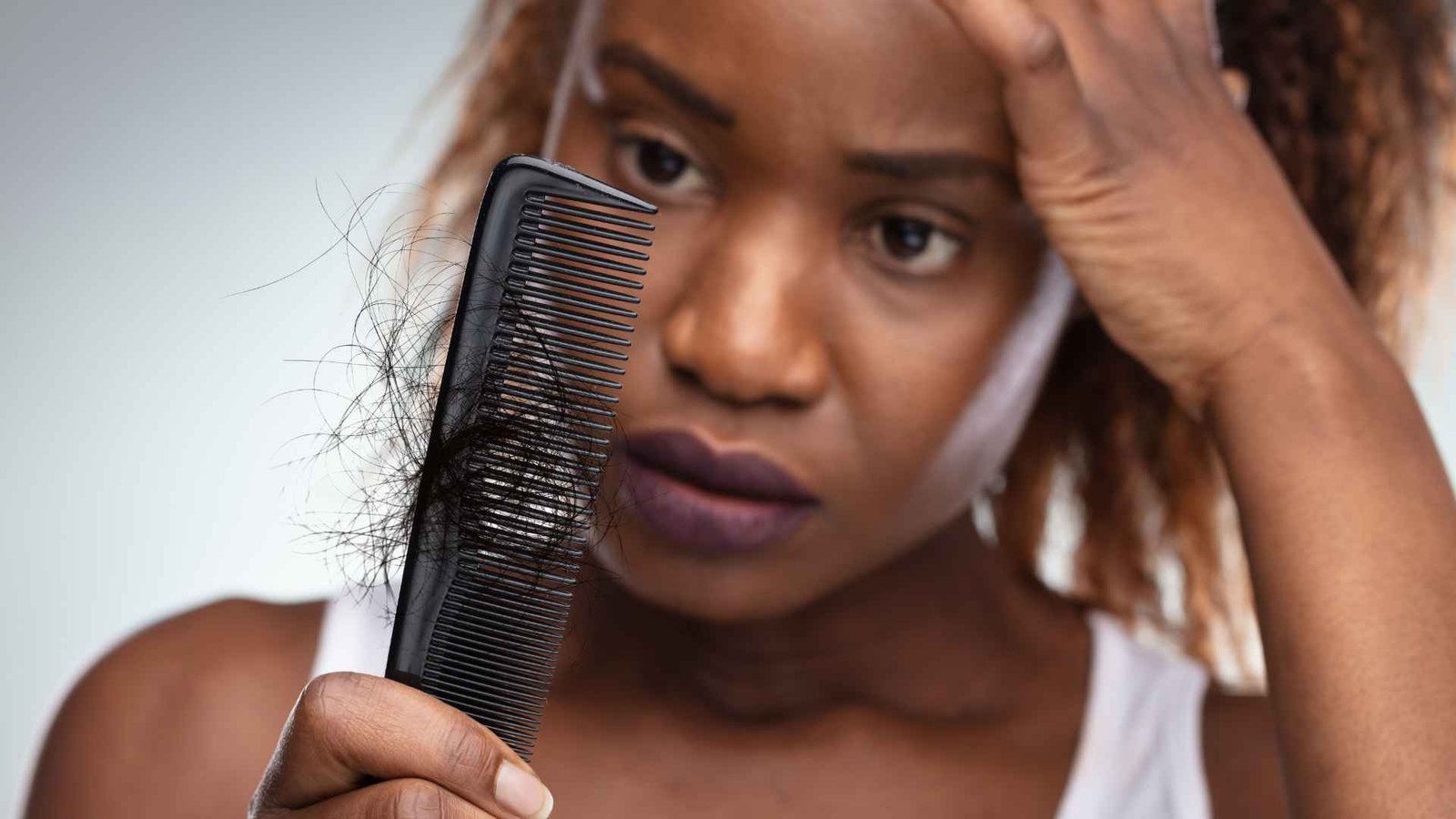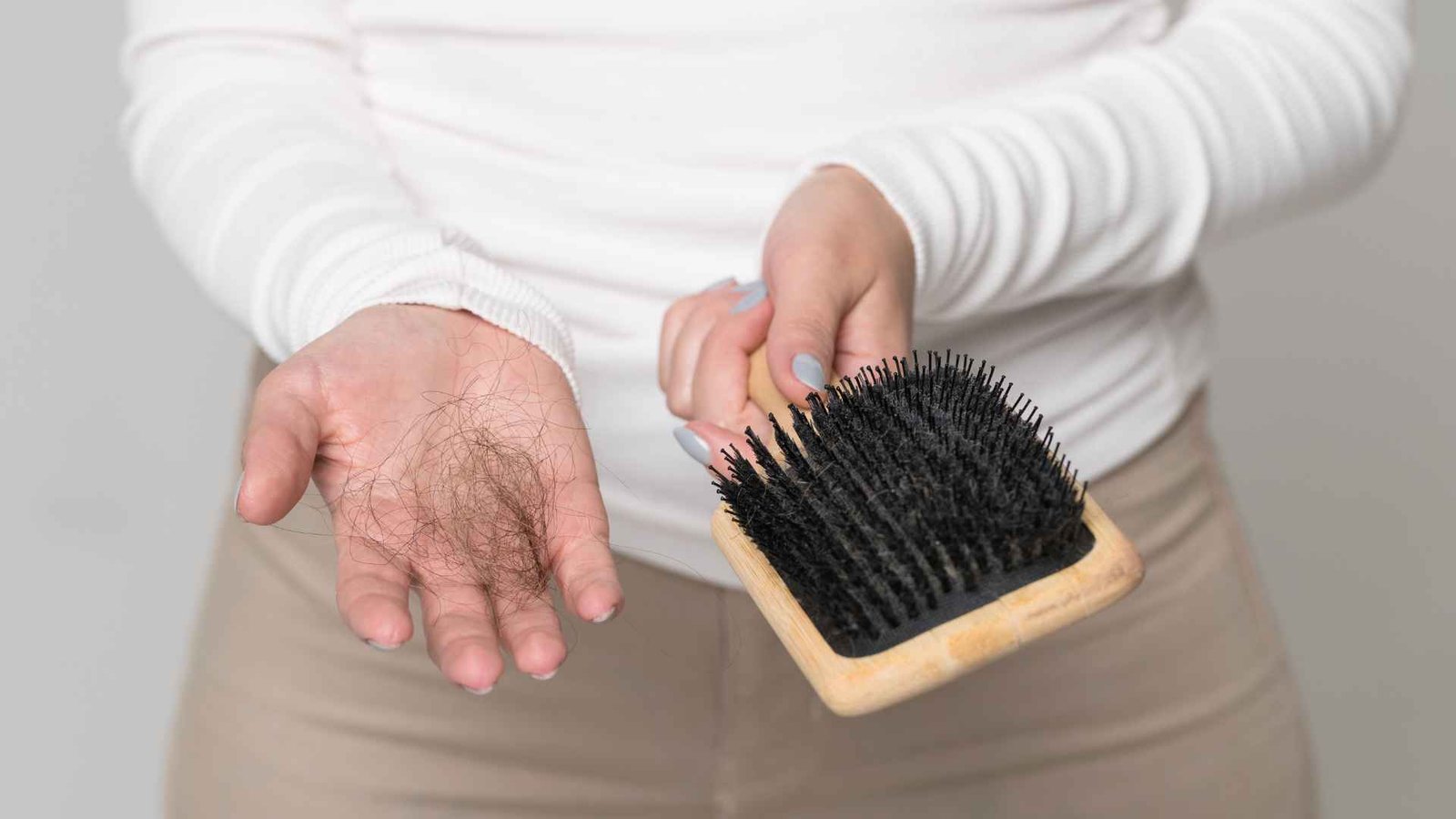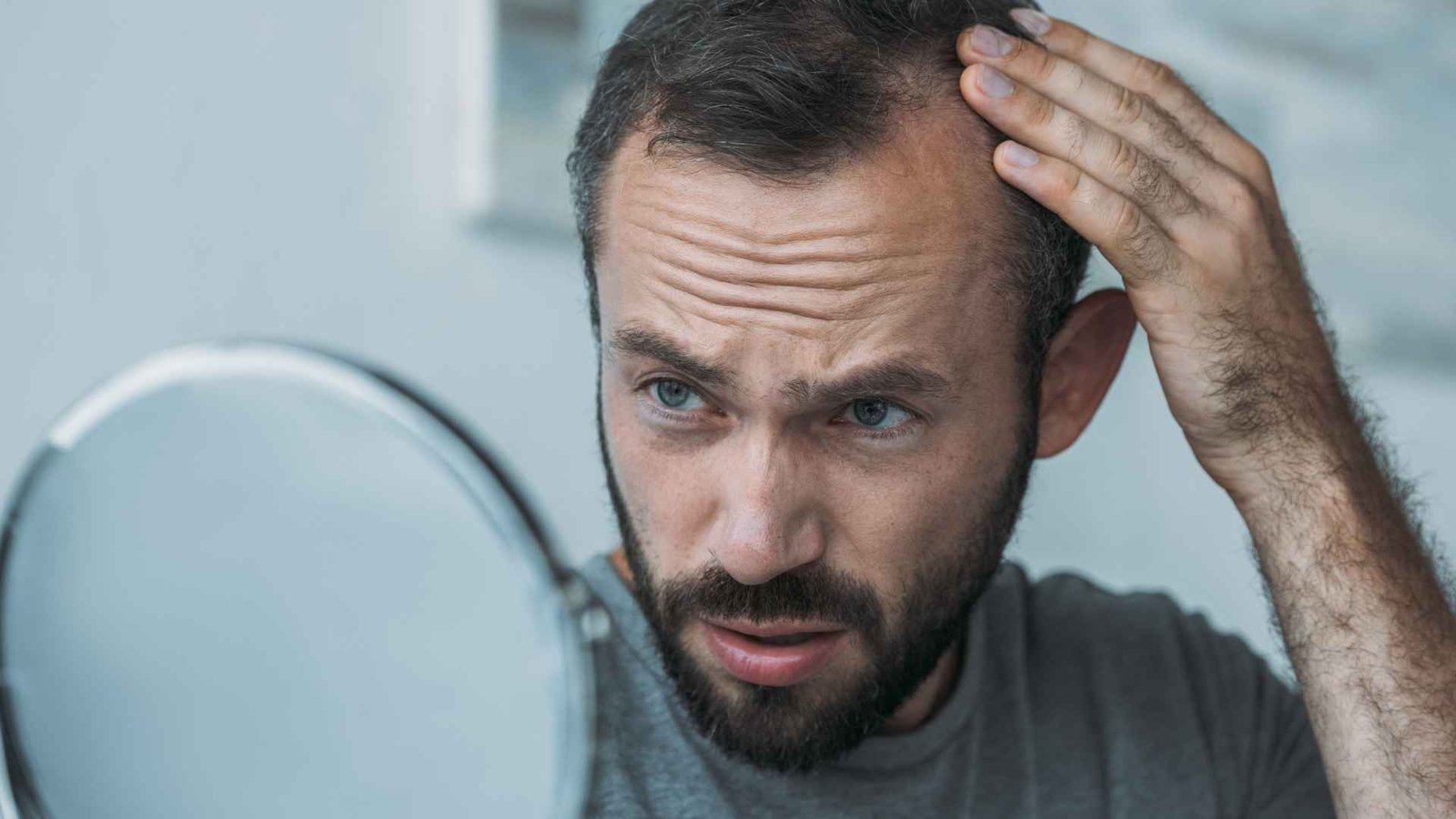Smoking is a widespread habit with well-known detrimental effects on health. It is associated with an increased risk of various diseases, including cardiovascular conditions, respiratory issues, and cancer. However, apart from these known health risks, concerns have been raised regarding the potential link between smoking and hair loss.
In this article, we aim to explore the scientific evidence surrounding the connection between smoking and hair loss. By examining the available research, we seek to provide clarity on this topic and help individuals understand the potential impact of smoking on their hair health.
Understanding Hair Loss

Hair loss, also known as alopecia, refers to the partial or complete loss of hair from the scalp or other parts of the body. It can have various causes, including genetic factors, hormonal imbalances, and medical conditions. Understanding the impact of lifestyle choices, including smoking, on hair health is crucial. Here’s an overview:
Common Causes of Hair Loss:
- Genetic Factors (Androgenetic Alopecia): The most common cause of hair loss is androgenetic alopecia, also known as male or female pattern baldness. It is influenced by genetic factors and hormonal changes.
- Hormonal Imbalances: Hormonal changes, such as those occurring during pregnancy, menopause, or thyroid disorders, can contribute to hair loss.
- Medical Conditions: Certain medical conditions like alopecia areata, scalp infections, and autoimmune diseases can lead to hair loss.
Impact of Lifestyle Choices on Hair Health:
- Smoking and Hair Loss: Smoking can potentially contribute to hair loss due to its negative effects on blood circulation, oxidative stress, and hormonal balance. These factors can impact the hair follicles and disrupt the hair growth cycle.
- Other Lifestyle Factors: Poor nutrition, excessive stress, inadequate sleep, and harmful hairstyling practices can also negatively affect hair health.
Significance of Healthy Hair:
- Healthy hair is not only a matter of aesthetics but can also play a significant role in self-esteem and overall appearance. Hair is often considered an important aspect of personal identity and can affect how individuals feel about themselves.
- Understanding the potential impact of lifestyle choices, including smoking, on hair health is crucial for maintaining healthy and vibrant hair.
It is important to recognize that hair loss can be influenced by multiple factors, and while lifestyle choices like smoking can play a role, they are not the sole cause. By adopting a holistic approach to hair health, individuals can make informed decisions about their habits and lifestyle choices to promote overall well-being and maintain healthy hair.
The Relationship Between Smoking and Hair Loss

Smoking can potentially contribute to hair loss through various mechanisms. Let’s explore some of the effects of smoking on hair health:
Circulatory System and Blood Flow:
- Smoking can have detrimental effects on the circulatory system, leading to reduced blood flow throughout the body, including the scalp.
- Restricting blood flow to the hair follicles can impede the delivery of essential nutrients and oxygen necessary for healthy hair growth.
- Inadequate blood supply to the hair follicles can disrupt the normal hair growth cycle and contribute to hair thinning and loss.
Oxidative Stress:
- Smoking exposes the body to harmful substances, including free radicals and toxins present in cigarettes.
- These substances generate oxidative stress, which can damage cells and tissues, including the hair follicles.
- Oxidative stress contributes to inflammation, premature aging, and impaired hair follicle function, potentially leading to hair loss.
Toxins in Cigarettes:
- Cigarette smoke contains numerous toxins and chemicals that can have a detrimental effect on hair health.
- These toxins can accumulate in the scalp, impairing the normal functioning of hair follicles and disrupting the hair growth cycle.
- Over time, the damage caused by the toxins can lead to weakened hair follicles, resulting in hair loss.
It is important to note that the relationship between smoking and hair loss is complex and can be influenced by individual factors such as genetics, overall health, and the duration and intensity of smoking. Quitting smoking or reducing tobacco consumption can have positive effects on overall health, including potential benefits for hair health.
While the effects of smoking on hair loss have been observed in scientific studies, it is important to consult with healthcare professionals to fully understand the impact of smoking on individual hair health and explore effective strategies for smoking cessation.
Scientific Studies and Evidence
Scientific research has examined the potential link between smoking and hair loss, including androgenetic alopecia. Let’s provide an overview of the existing studies:
Androgenetic Alopecia:
- Several studies have explored the association between smoking and androgenetic alopecia, the most common form of hair loss.
- A study published in the Archives of Dermatology found a significant association between smoking and the severity of androgenetic alopecia in men. It suggested that smoking may contribute to early onset and increased severity of this type of hair loss.
- Another study published in the British Journal of Dermatology reported similar findings, linking smoking to an increased risk of androgenetic alopecia in both men and women.
Other Types of Hair Loss:
- Limited research has examined the association between smoking and other types of hair loss, such as alopecia areata or telogen effluvium.
- A study published in the Journal of the European Academy of Dermatology and Venereology found a positive association between smoking and the development of alopecia areata, an autoimmune hair loss condition.
- Conflicting results exist regarding the relationship between smoking and telogen effluvium, a type of hair loss characterized by excessive shedding. Some studies suggest a potential association, while others did not find a significant link.
Overall, the scientific evidence suggests a potential association between smoking and hair loss, particularly in the case of androgenetic alopecia. However, it is important to note that individual responses can vary, and other factors such as genetics and overall health may also contribute to hair loss.
It is worth emphasizing that scientific research is ongoing, and further studies are needed to establish a definitive and comprehensive understanding of the relationship between smoking and hair loss. Quitting smoking or reducing tobacco consumption can have numerous health benefits, including potential improvements in hair health. Consulting with healthcare professionals can provide personalized advice and guidance on the effects of smoking on hair health based on individual circumstances.
Smoking and Hair Health
Smoking can have a negative impact on overall hair health, leading to various issues such as hair thinning, reduced hair growth, and premature graying. Let’s explore the specific ways in which smoking-related factors contribute to hair damage:
Hair Thinning and Reduced Hair Growth:
- Smoking can restrict blood flow to the hair follicles, depriving them of essential nutrients and oxygen needed for healthy hair growth.
- The impaired blood circulation caused by smoking can lead to weakened hair follicles, resulting in hair thinning and a reduction in hair growth.
Premature Graying:
- Studies suggest a potential link between smoking and premature graying of hair. Smoking-related oxidative stress can contribute to the depletion of melanin, the pigment responsible for hair color.
- The toxins and harmful chemicals in cigarettes can accelerate the aging process of hair follicles, leading to premature graying.
Nicotine, Carbon Monoxide, and Harmful Chemicals:
- Nicotine, carbon monoxide, and other harmful chemicals present in cigarette smoke can directly damage the hair follicles.
- Nicotine disrupts blood flow, constriction of blood vessels, and impairs the delivery of essential nutrients to the hair follicles.
- Carbon monoxide reduces the oxygen-carrying capacity of the blood, further depriving the hair follicles of necessary oxygen.
- The harmful chemicals in cigarettes can cause inflammation, oxidative stress, and DNA damage in the hair follicles, contributing to hair loss and damage.
Long-Term Consequences:
- Prolonged smoking can have cumulative and long-term effects on hair follicles.
- Chronic exposure to smoking-related toxins and oxidative stress can lead to irreversible damage to the hair follicles, potentially resulting in permanent hair loss.
- Quitting smoking or reducing tobacco consumption can help mitigate further damage to hair follicles and improve overall hair health.
It is important to note that the impact of smoking on hair health can vary among individuals and may be influenced by other factors such as genetics, overall health, and the duration and intensity of smoking. Adopting a smoke-free lifestyle and seeking professional guidance can contribute to improved hair health and overall well-being.
Lifestyle Factors and Hair Loss
The impact of smoking on hair loss is often intertwined with other lifestyle factors that can contribute to hair health issues. Let’s explore the interplay between smoking and other factors such as poor nutrition and stress, and emphasize the importance of maintaining a healthy lifestyle for promoting hair health:
Poor Nutrition:
- Smoking is frequently associated with unhealthy lifestyle choices, including poor nutrition.
- Inadequate intake of essential nutrients, such as vitamins, minerals, and proteins, can negatively affect hair health and contribute to hair loss.
- Combining smoking with a nutrient-deficient diet can further compromise the health of hair follicles, exacerbating the risk of hair loss.
Stress:
- Smoking and stress often go hand in hand, as individuals may turn to smoking as a coping mechanism for stress relief.
- Chronic stress can disrupt the hair growth cycle and contribute to hair loss.
- Smoking and stress together can compound the negative effects on hair health, as both factors can affect blood circulation, hormonal balance, and overall well-being.
Healthy Lifestyle Choices:
- Maintaining a healthy lifestyle is essential for promoting hair health and minimizing the risk of hair loss.
- Adopting a balanced diet rich in fruits, vegetables, lean proteins, whole grains, and healthy fats provides the necessary nutrients for hair growth.
- Stress management techniques such as regular exercise, meditation, and relaxation practices can help mitigate the impact of stress on hair health.
Smoking Cessation:
- Quitting smoking or reducing tobacco consumption is a significant step towards improving overall health, including hair health.
- By quitting smoking, individuals can enhance blood circulation, reduce oxidative stress, and provide a healthier environment for hair follicles.
It is important to recognize that hair loss is a complex issue influenced by multiple factors. By adopting a holistic approach to hair health, individuals can make positive lifestyle choices, including quitting smoking, improving nutrition, managing stress, and seeking professional guidance. Consulting with healthcare professionals, including registered dietitians and mental health experts, can provide personalized support and guidance for maintaining a healthy lifestyle and promoting hair health.
Quitting Smoking and Hair Regrowth

Quitting smoking offers numerous benefits for overall health and well-being. Let’s explore how quitting smoking can potentially improve hair health, promote hair regrowth, and provide resources for smoking cessation support:
Overall Health Benefits:
- Quitting smoking has wide-ranging health benefits, including reducing the risk of cardiovascular diseases, respiratory issues, and certain types of cancers.
- Improving overall health positively impacts hair health, as a healthier body can better support the hair growth process.
Improved Blood Circulation:
- Smoking restricts blood vessels and reduces blood flow throughout the body, including the scalp.
- Quitting smoking allows blood vessels to regain their normal function, enhancing blood circulation and providing essential nutrients and oxygen to the hair follicles.
- Improved blood circulation promotes a healthier scalp environment for hair growth.
Reduction of Oxidative Stress:
- Smoking exposes the body to oxidative stress, which can lead to cell and tissue damage, including in the hair follicles.
- Quitting smoking reduces the intake of harmful substances and toxins present in cigarettes, resulting in decreased oxidative stress on the body and hair follicles.
- Reducing oxidative stress can promote a healthier environment for hair regrowth.
Hair Regrowth Potential:
- While quitting smoking does not guarantee immediate hair regrowth, it can provide a favorable environment for healthy hair regrowth over time.
- As blood circulation improves and oxidative stress decreases, the hair follicles have a better chance of regaining their normal function, potentially leading to hair regrowth.
If you smoke and are concerned about hair loss, consider quitting smoking to improve your overall health and potentially promote hair regrowth. Here are some resources that can support you in your smoking cessation journey:
- Speak to a healthcare professional: Consult with your doctor, who can provide guidance, support, and resources for smoking cessation.
- Smoking cessation programs: Explore local smoking cessation programs, support groups, or counseling services that can provide you with strategies and assistance in quitting smoking.
- Nicotine replacement therapy: Consider using nicotine replacement products, such as patches, gums, or medications, under the guidance of a healthcare professional.
Remember, quitting smoking is a journey that requires determination and support. By quitting smoking, you not only improve your overall health but also provide a healthier environment for hair regrowth. Stay committed, seek support, and embrace a healthier lifestyle for the benefit of your well-being and hair health.
Watch how smoking causes hair loss and premature greying | Video
Top 5 FAQs and answers related to does smoking cause hair loss
Does smoking cause hair loss?
Smoking can potentially contribute to hair loss due to its impact on blood circulation, oxidative stress, and hair follicle damage. While the relationship between smoking and hair loss is complex and can vary among individuals, quitting smoking can improve overall hair health.
How does smoking affect hair health?
Smoking can affect hair health by restricting blood flow to the hair follicles, increasing oxidative stress, and introducing harmful chemicals that can damage the hair follicles. These factors can contribute to hair thinning, reduced hair growth, and premature graying.
Can quitting smoking promote hair regrowth?
Quitting smoking can provide a healthier environment for hair regrowth. By improving blood circulation, reducing oxidative stress, and eliminating exposure to harmful chemicals, quitting smoking supports the overall health of the hair follicles, potentially promoting hair regrowth over time.
Are there specific types of hair loss associated with smoking?
Smoking has been linked to various types of hair loss, including androgenetic alopecia, alopecia areata, and potentially telogen effluvium. However, the impact can vary among individuals, and genetics and other factors also play a significant role.
How can I quit smoking to improve my hair health?
Quitting smoking requires determination and support. Seek guidance from healthcare professionals, consider smoking cessation programs or support groups, and explore nicotine replacement therapy options. Quitting smoking not only improves hair health but also has numerous benefits for overall well-being.
Conclusion

In conclusion, let’s summarize the key points discussed in this article:
- Scientific evidence suggests a potential link between smoking and hair loss, including issues such as hair thinning, reduced hair growth, and premature graying.
- Smoking can impact hair health through factors like restricted blood circulation, oxidative stress, and damage to the hair follicles from toxins present in cigarettes.
- Lifestyle factors such as poor nutrition and stress can interact with smoking, further influencing hair health and the risk of hair loss.
- Quitting smoking offers numerous benefits for overall health and well-being, including potential improvements in hair health and regrowth.
- Adopting a healthy lifestyle, including a balanced diet and stress management, plays a crucial role in maintaining healthy hair.
- Consulting with healthcare professionals can provide personalized advice and guidance on managing hair loss concerns and quitting smoking effectively.
Remember, taking care of your hair health involves considering various factors, including lifestyle choices. By quitting smoking and adopting a healthy lifestyle, you can promote not only hair health but also overall well-being. If you have specific concerns about hair loss or smoking cessation, reach out to healthcare professionals, such as dermatologists or healthcare providers specialized in hair health, who can provide personalized guidance and support.
Prioritize your health, make informed choices, and seek professional advice for the best approach to maintaining healthy hair and overall wellness.
Please share this Does Smoking Cause Hair Loss? Its Impacts on Hair Health with your friends and do a comment below about your feedback.
We will meet you on next article.
Until you can read, Does Pre-Workout Supplements Cause Hair Loss? Guide